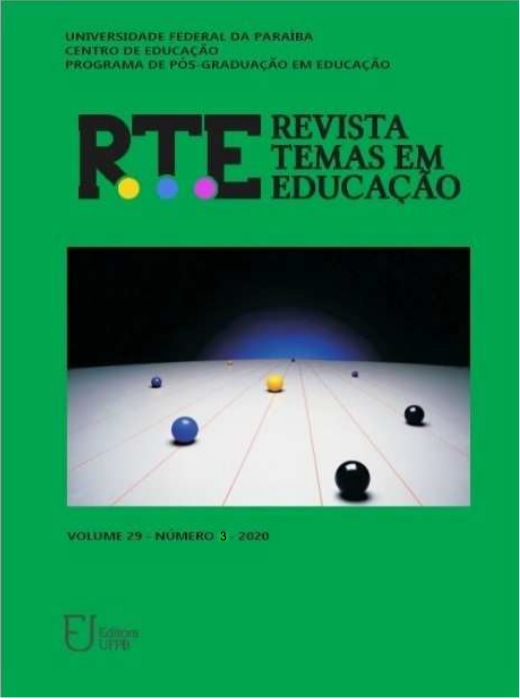THE EDUCATIONAL POTENTIAL OF HYBRID TEACHING AS AN ACTIVE METHODOLOGY: A CASE STUDY
THE EDUCATIONAL POTENTIAL OF HYBRID TEACHING AS AN ACTIVE METHODOLOGY: A CASE STUDY
DOI:
https://doi.org/10.22478/ufpb.2359-7003.2020v29n3.49808Keywords:
Hybrid teaching, Active methodology, Teaching personalizationAbstract
The aim of this article was to investigate the educational potential of Hybrid Teaching as an educational practice in a private school in Belo Horizonte - Minas Gerais. To this end, a qualitative, descriptive research was carried out. As for the technical procedure, the case study was chosen. The data collection instrument used was non-participatory observation. The observed data were recorded in a field diary. The results found allowed to conclude that the pedagogical practices that are part of the Hybrid Teaching have provided a teaching that arouses the interest of the students of the Internet Generation, due to the use of digital technologies, which streamlined the classes and motivated the students, who had the opportunity to experience different experiments and new knowledge. When using digital technologies, it was observed that the students' performances were more active. In addition, Hybrid Teaching has favored collaboration between students during practical activities and has shown its potential to favor personalization of teaching. Also, it was possible to verify the engagement of all professionals involved in this project of implementation of Hybrid Teaching in the school, positively evaluating their practices. The main reasons that allowed this assessment was: the school involved the whole team to carry out the project on Hybrid Education, offered physical, technological and pedagogical conditions and started the implementation gradually, giving time for everyone to adapt to the new model.
Downloads
Downloads
Published
How to Cite
Issue
Section
License
Authors who publish in this journal agree to the following terms:
. Authors retain the copyright and grant the journal the right to first publication, with the work simultaneously licensed under the Licença Creative Commons Attribution that allows the sharing of the work with acknowledgment of authorship and initial publication in this magazine. . Authors are authorized to assume additional contracts separately, for non-exclusive distribution of the version of the work published in this journal (eg, publishing in institutional repository or as a book chapter), with acknowledgment of authorship and initial publication in this journal.
. Authors are permitted and encouraged to publish and distribute their work online (eg in institutional repositories or on their personal page) at any point before or during the editorial process, as this can generate productive changes, as well as increase impact and citation of the published work (See O Efeito do Acesso Livre).



















